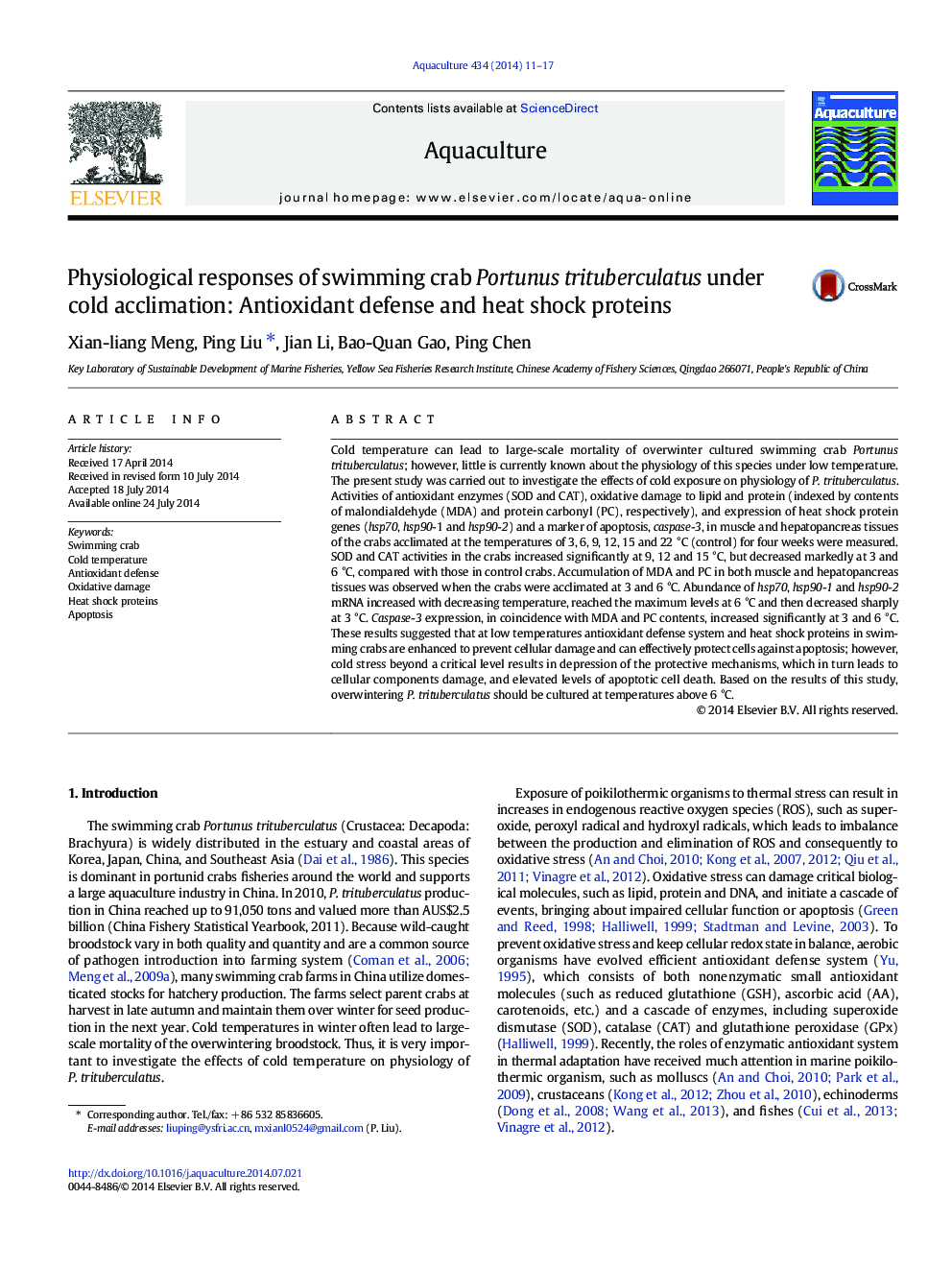| کد مقاله | کد نشریه | سال انتشار | مقاله انگلیسی | نسخه تمام متن |
|---|---|---|---|---|
| 2421711 | 1552853 | 2014 | 7 صفحه PDF | دانلود رایگان |

• Antioxidant defense and hsp expression are enhanced when temperature decreases.
• Cold temperature (< 6 ˚C) causes depression of antioxidant defense and hsp expression.
• Cold temperature (< 6 ˚C) leads to increased levels of caspase-3 expression.
Cold temperature can lead to large-scale mortality of overwinter cultured swimming crab Portunus trituberculatus; however, little is currently known about the physiology of this species under low temperature. The present study was carried out to investigate the effects of cold exposure on physiology of P. trituberculatus. Activities of antioxidant enzymes (SOD and CAT), oxidative damage to lipid and protein (indexed by contents of malondialdehyde (MDA) and protein carbonyl (PC), respectively), and expression of heat shock protein genes (hsp70, hsp90-1 and hsp90-2) and a marker of apoptosis, caspase-3, in muscle and hepatopancreas tissues of the crabs acclimated at the temperatures of 3, 6, 9, 12, 15 and 22 °C (control) for four weeks were measured. SOD and CAT activities in the crabs increased significantly at 9, 12 and 15 °C, but decreased markedly at 3 and 6 °C, compared with those in control crabs. Accumulation of MDA and PC in both muscle and hepatopancreas tissues was observed when the crabs were acclimated at 3 and 6 °C. Abundance of hsp70, hsp90-1 and hsp90-2 mRNA increased with decreasing temperature, reached the maximum levels at 6 °C and then decreased sharply at 3 °C. Caspase-3 expression, in coincidence with MDA and PC contents, increased significantly at 3 and 6 °C. These results suggested that at low temperatures antioxidant defense system and heat shock proteins in swimming crabs are enhanced to prevent cellular damage and can effectively protect cells against apoptosis; however, cold stress beyond a critical level results in depression of the protective mechanisms, which in turn leads to cellular components damage, and elevated levels of apoptotic cell death. Based on the results of this study, overwintering P. trituberculatus should be cultured at temperatures above 6 °C.
Journal: Aquaculture - Volume 434, 20 October 2014, Pages 11–17